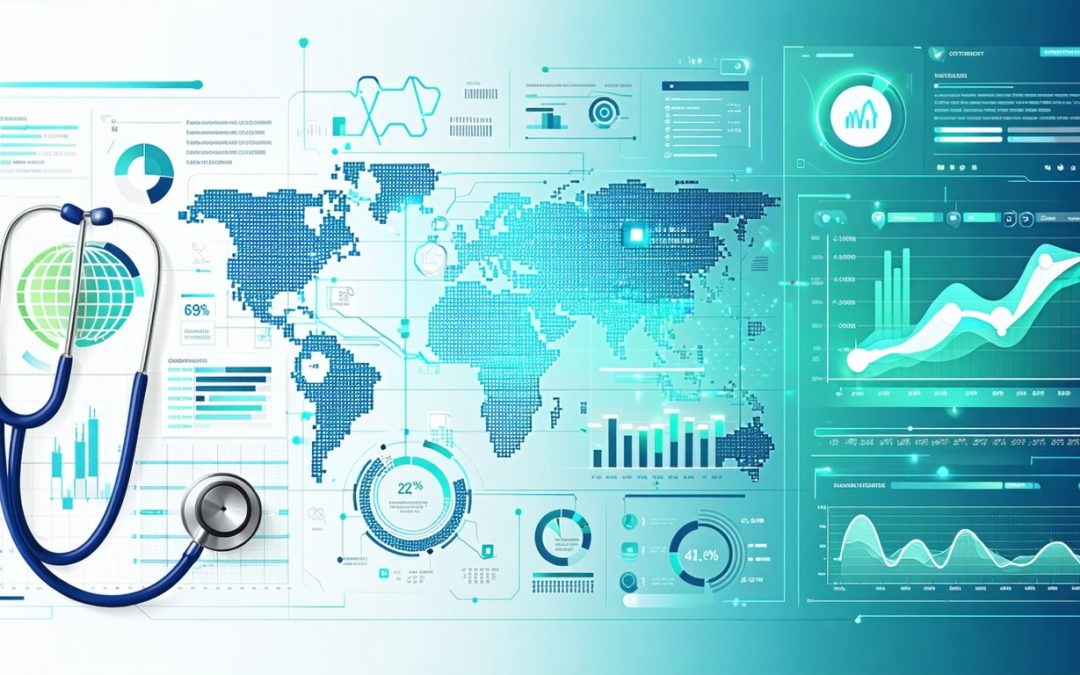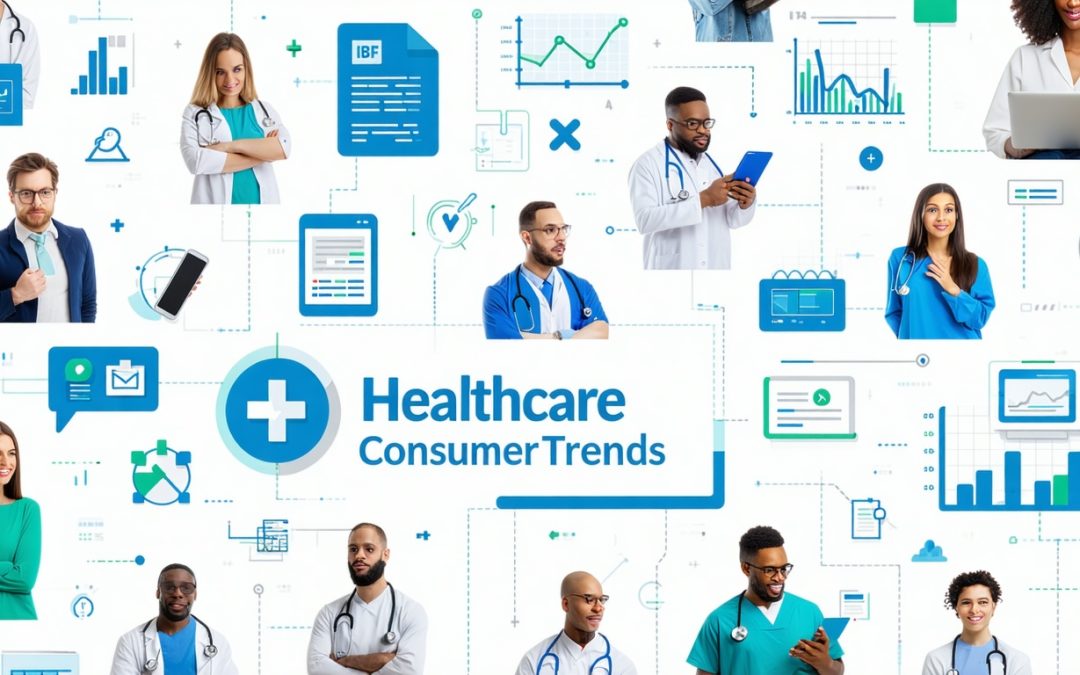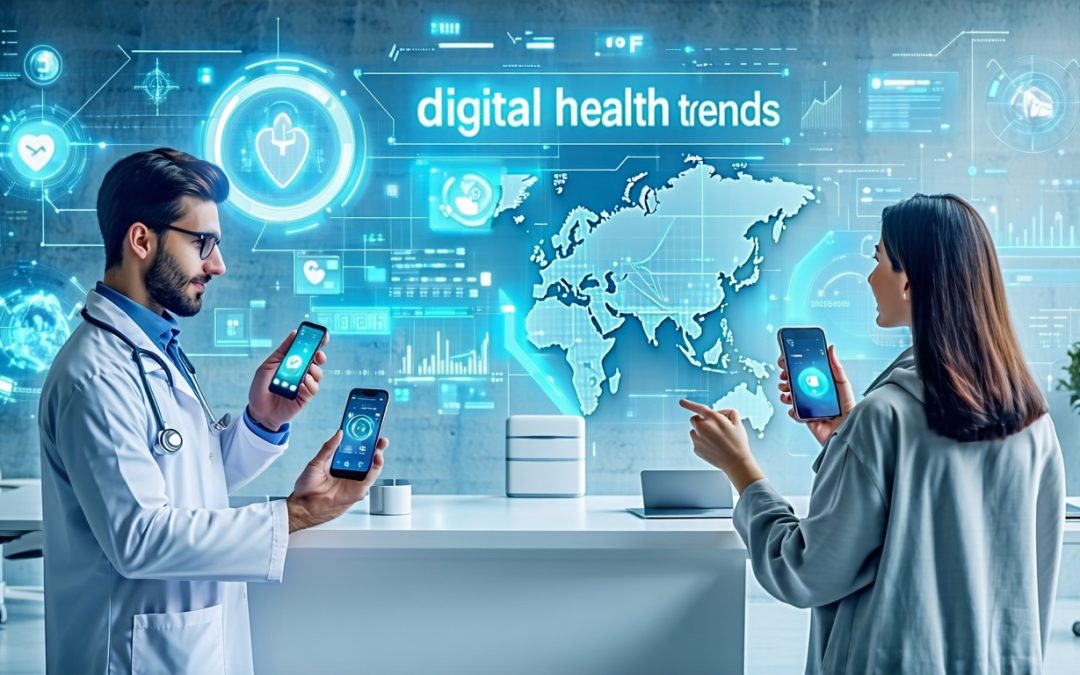Personalized Healthcare Trends for Young Professionals
Importance of Personalized Healthcare
Personalized healthcare is becoming increasingly significant for young professionals. This approach tailors medical treatment to the individual characteristics of each patient, considering factors such as genetics, lifestyle, and environment. By focusing on personalized care, healthcare providers can enhance treatment effectiveness, improve patient satisfaction, and promote better health outcomes.
Young professionals often seek healthcare solutions that align with their unique needs and preferences. Personalized healthcare allows them to take an active role in their health management, leading to more informed decisions and a greater sense of control over their well-being. As this trend continues to grow, it is essential for young professionals to stay informed about the latest developments in personalized healthcare.
Overview of Key Trends in Personalized Healthcare
Several key trends are shaping the landscape of personalized healthcare. These trends reflect advancements in technology, shifts in patient expectations, and a growing emphasis on holistic health approaches. Below is a summary of some of the most notable trends:
| Trend | Description |
|---|---|
| Telemedicine and Virtual Care | Increased access to healthcare services through remote consultations and online platforms. |
| Genetic Testing and Precision Medicine | Utilization of genetic information to tailor treatments and predict health risks. |
| Wearable Technology and Health Apps | Use of devices and applications to monitor health metrics and promote wellness. |
| Integrative and Functional Medicine | Focus on holistic approaches that address root causes of health issues. |
| Personal Health Data Security and Privacy | Emphasis on protecting patient data and ensuring compliance with regulations. |
These trends are not only transforming the healthcare experience for young professionals but also paving the way for a more patient-centered approach. For further insights into the evolving landscape, explore our articles on healthcare industry trends and healthcare technology trends.
Telemedicine and Virtual Care
Telemedicine and virtual care are transforming the landscape of personalized healthcare, particularly for young professionals. These innovations offer significant advantages in terms of accessibility and convenience, as well as remote monitoring and management of health conditions.
Accessibility and Convenience
Telemedicine provides young professionals with the ability to access healthcare services from the comfort of their homes or workplaces. This is especially beneficial for those with busy schedules who may find it challenging to visit a healthcare provider in person. Virtual consultations can be scheduled at times that suit the individual, reducing the need for time off work or long waits in clinics.
The following table illustrates the growing popularity of telemedicine among different age groups:
| Age Group | Percentage Using Telemedicine |
|---|---|
| 18-24 | 45% |
| 25-34 | 55% |
| 35-44 | 50% |
| 45-54 | 40% |
| 55+ | 30% |
As shown, a significant percentage of young adults are utilizing telemedicine services, highlighting its importance in modern healthcare.
Remote Monitoring and Management
Remote monitoring technologies allow healthcare providers to track patients’ health metrics in real-time. This is particularly useful for managing chronic conditions such as diabetes or hypertension. Young professionals can use wearable devices and health apps to monitor their vital signs, which can then be shared with their healthcare providers for ongoing assessment.
The benefits of remote monitoring include:
- Early Detection: Identifying potential health issues before they become serious.
- Personalized Care: Tailoring treatment plans based on real-time data.
- Increased Engagement: Encouraging individuals to take an active role in their health management.
For more insights into how technology is shaping healthcare, explore our article on healthcare technology trends.
Telemedicine and virtual care are key components of the personalized healthcare trends that young professionals should consider. These advancements not only enhance accessibility but also empower individuals to take control of their health through innovative monitoring solutions.
Genetic Testing and Precision Medicine
Genetic testing and precision medicine are becoming increasingly important in the realm of personalized healthcare. These advancements allow for tailored healthcare solutions that cater to individual needs, particularly for young professionals considering private healthcare options.
Understanding Genetic Testing
Genetic testing involves analyzing an individual’s DNA to identify genetic predispositions to certain health conditions. This process can provide valuable insights into a person’s health risks, enabling proactive measures to be taken.
| Type of Genetic Test | Purpose |
|---|---|
| Carrier Testing | Identifies if an individual carries a gene for a specific genetic disorder |
| Predictive Testing | Assesses the risk of developing a genetic condition in the future |
| Diagnostic Testing | Confirms or rules out a specific genetic condition |
| Pharmacogenomic Testing | Determines how an individual’s genes affect their response to medications |
Genetic testing can empower individuals by providing them with information that can influence their lifestyle choices and healthcare decisions. For more insights into the healthcare landscape, refer to our article on healthcare industry trends.
Benefits of Precision Medicine
Precision medicine takes the information gathered from genetic testing and applies it to create personalized treatment plans. This approach considers an individual’s unique genetic makeup, environment, and lifestyle, leading to more effective healthcare solutions.
| Benefit | Description |
|---|---|
| Targeted Treatments | Allows for therapies specifically designed for an individual’s genetic profile |
| Improved Outcomes | Increases the likelihood of successful treatment by tailoring approaches to individual needs |
| Reduced Side Effects | Minimizes adverse reactions by selecting medications that are more compatible with a person’s genetic makeup |
| Enhanced Preventive Care | Enables proactive health management by identifying risks early on |
The shift towards precision medicine represents a significant advancement in the healthcare field. Young professionals can benefit from these personalized healthcare trends by making informed decisions about their health. For further exploration of healthcare trends, check out our article on healthcare technology trends.
Wearable Technology and Health Apps
Wearable technology and health applications are becoming essential tools for young professionals seeking to manage their health proactively. These innovations provide valuable insights into personal health metrics and promote overall wellness.
Monitoring Health Metrics
Wearable devices, such as fitness trackers and smartwatches, allow individuals to monitor various health metrics in real-time. These devices can track heart rate, steps taken, sleep patterns, and even stress levels. By collecting this data, users can gain a better understanding of their health and make informed decisions.
The following table outlines common health metrics monitored by wearable technology:
| Health Metric | Description |
|---|---|
| Heart Rate | Measures beats per minute |
| Steps Taken | Counts daily physical activity |
| Sleep Quality | Analyzes sleep duration and cycles |
| Caloric Burn | Estimates calories burned during activities |
| Stress Levels | Monitors physiological stress indicators |
This data can be invaluable for young professionals aiming to maintain a balanced lifestyle. By regularly reviewing their metrics, they can identify trends and make adjustments to their routines as needed.
Promoting Health and Wellness
Health applications complement wearable technology by providing personalized recommendations and resources. These apps often include features such as workout plans, nutrition tracking, and mindfulness exercises. By integrating these tools into their daily lives, young professionals can enhance their overall well-being.
The following table highlights popular features found in health apps:
| App Feature | Purpose |
|---|---|
| Workout Plans | Guides users through exercise routines |
| Nutrition Tracking | Helps monitor food intake and calories |
| Goal Setting | Allows users to set and track health goals |
| Mindfulness Exercises | Offers guided meditation and relaxation techniques |
| Community Support | Connects users with others for motivation and accountability |
By utilizing wearable technology and health apps, young professionals can take charge of their health journey. These tools not only provide valuable insights but also foster a culture of wellness and self-care. For more information on the latest trends in healthcare technology, explore our article on healthcare technology trends.
Integrative and Functional Medicine
Integrative and functional medicine is gaining traction among young professionals seeking personalized healthcare solutions. This approach emphasizes a comprehensive understanding of health, focusing on the individual as a whole rather than just treating symptoms.
Holistic Approach to Healthcare
The holistic approach in integrative medicine considers the physical, emotional, and social aspects of health. It recognizes that various factors, including lifestyle, environment, and genetics, play a significant role in overall well-being. This perspective encourages young professionals to engage in their health actively, promoting preventive care and wellness strategies.
| Aspect | Description |
|---|---|
| Physical Health | Focus on nutrition, exercise, and sleep |
| Emotional Health | Addressing stress, mental health, and emotional well-being |
| Social Health | Importance of relationships and community support |
By adopting a holistic approach, individuals can develop a more profound understanding of their health and make informed decisions about their care. For more insights into the evolving landscape of healthcare, explore our article on healthcare industry trends.
Focus on Root Causes
Functional medicine takes a deeper dive into identifying the root causes of health issues. Instead of merely alleviating symptoms, this approach seeks to understand the underlying factors contributing to a person’s condition. This may involve comprehensive assessments, including lifestyle evaluations, genetic testing, and environmental factors.
| Common Health Issues | Potential Root Causes |
|---|---|
| Chronic Fatigue | Poor diet, lack of sleep, stress |
| Digestive Disorders | Food sensitivities, gut microbiome imbalance |
| Autoimmune Conditions | Genetic predisposition, environmental triggers |
By focusing on root causes, young professionals can work with healthcare providers to create personalized treatment plans that address their unique health challenges. This proactive approach aligns with the broader trend of personalized healthcare, which is becoming increasingly relevant in today’s healthcare landscape. For further exploration of emerging trends, check out our article on emerging trends in healthcare industry.
Personal Health Data Security and Privacy
As personalized healthcare continues to evolve, the importance of data security and privacy becomes increasingly critical. Young professionals considering private healthcare must be aware of the implications of sharing their personal health information.
Importance of Data Protection
Data protection is essential in maintaining the confidentiality and integrity of personal health information. With the rise of digital health solutions, sensitive data is often stored and transmitted electronically. This increases the risk of data breaches and unauthorized access.
Young professionals should prioritize healthcare providers that implement robust security measures to safeguard their information. Key aspects of data protection include:
| Data Protection Aspect | Description |
|---|---|
| Encryption | Protects data by converting it into a secure format that can only be read by authorized users. |
| Access Controls | Limits who can view or modify personal health information, ensuring only authorized personnel have access. |
| Regular Audits | Conducts assessments to identify vulnerabilities and ensure compliance with security protocols. |
Understanding these aspects can help young professionals make informed decisions about their healthcare providers.
Compliance with Regulations
Compliance with regulations is another crucial factor in personal health data security. Healthcare organizations must adhere to various laws and regulations designed to protect patient information. In the United States, the Health Insurance Portability and Accountability Act (HIPAA) sets national standards for the protection of health information.
Key compliance requirements include:
| Compliance Requirement | Description |
|---|---|
| Privacy Rule | Establishes standards for the protection of individuals’ medical records and personal health information. |
| Security Rule | Sets standards for safeguarding electronic health information against unauthorized access. |
| Breach Notification Rule | Requires healthcare providers to notify individuals in the event of a data breach involving their personal health information. |
Young professionals should seek out healthcare providers that demonstrate compliance with these regulations. This ensures that their personal health data is handled responsibly and securely. For more insights into the evolving landscape of healthcare, explore our articles on healthcare industry trends and healthcare technology trends.












0 Comments